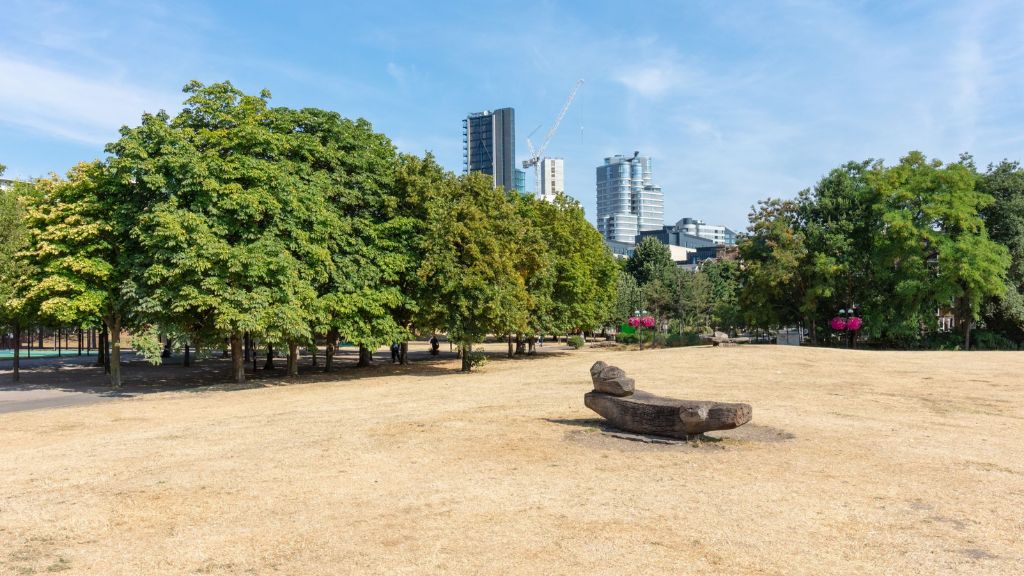Adapting to heat waves with resilience isn’t enough
With record temperatures posted in the UK already this summer, we consider what an ecological design thinking approach can bring to the table in our collective efforts to respond and adapt to more frequent heatwaves.

The recent heat wave has led to many commentators discussing the need for city councils and town planners and architects to start genuinely thinking about ways to adapt to climate change in the UK. The focus in this debate has largely been on resilience when adapting buildings and city centres to protect people against extreme heat, and in the current economic climate, efficiency and cheapness of materials will likely be the key factor. While speed and pragmatism are sadly necessary, focussing on quick fixes to climate resilience is not enough. The interventions we make at this point need to have ecological thinking at their centre from the choice of material to the design of systems and environments. If we are to make any lasting impact on the environment and our ability to cope in it, we need to recognize that our wellbeing and resilience is tied to our ecosystems’ s health. We have to look beyond quick fixes. We must look into nature’s wisdom for long-term solutions. We need to move beyond sustainability and adopt a regenerative, whole-life centred mind-set. We have to start these by coming together as communities and take radical steps towards reducing carbon emissions.
At Schumacher College, where our MA Ecological Design Thinking has been running for almost 10 years, we teach community-led approaches to ways of resolving exactly these kinds of issues around the world. The Programme Lead, Dr Mona Nasseri, recently went to Tanzania to look at soil erosion issues and to work with local people to help them find ways to overcome their issues with climate change. Past students are off now working on real life projects making a difference in South America, South Africa, Japan and elsewhere. Yet this week’s dramatic rise in record temperatures here shows more than ever that we need to turn this mode of ecological thinking on ourselves in the UK right now, and we hope that those in power will listen to the call for an ecological, regenerative approach, and not just panic buy a suite of plastic parasols.
